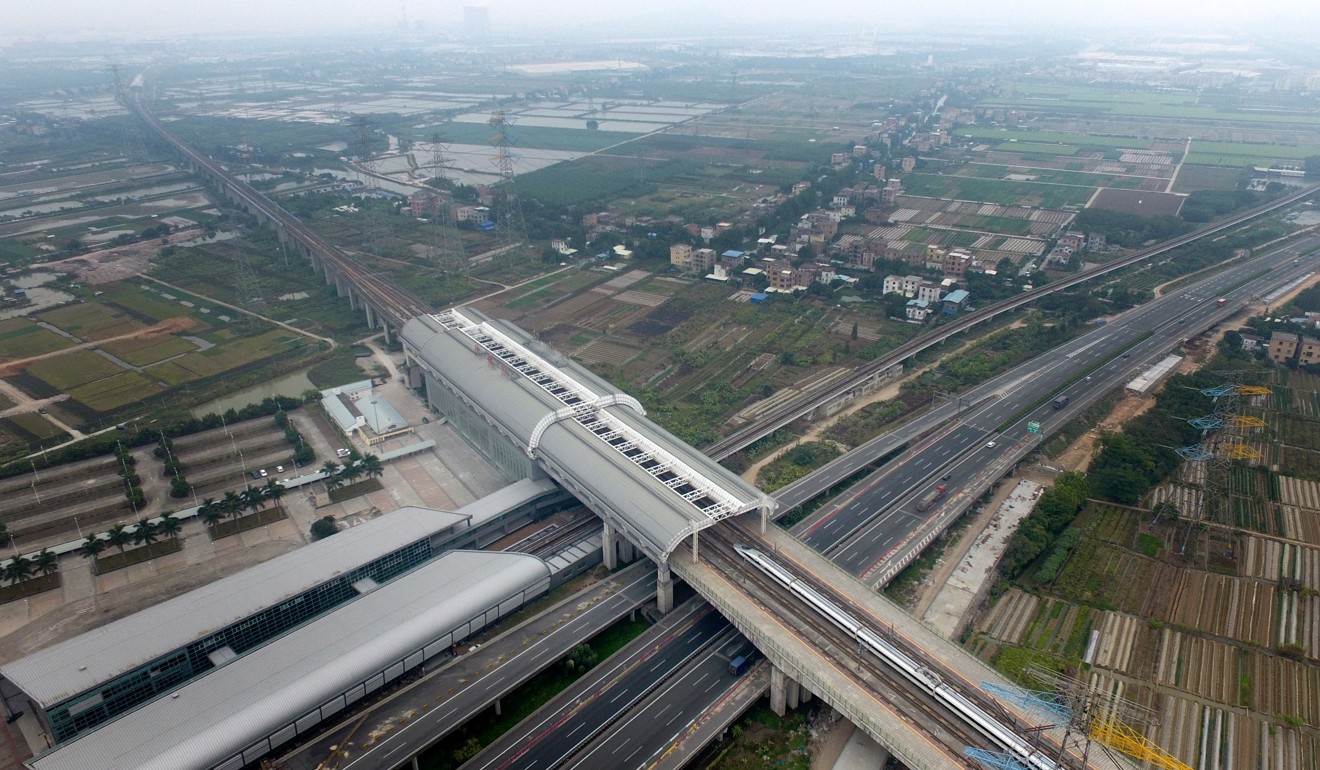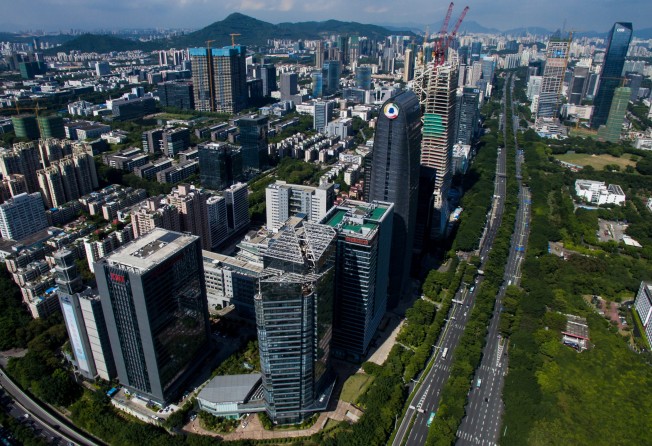
Beijing should adopt Hong Kong’s free market economy and turn Greater Bay Area into largest free-trade zone in China, says former top Shenzhen official
- Former vice-mayor of mainland city says free movement of money and people can boost area as hotbed of innovation
- Hong Kong’s economic advantages are China’s ‘most important resources’

Beijing should adopt a European approach to the Greater Bay Area and turn it into the largest free-trade zone in China, a former top Shenzhen official said on Tuesday.
Zhang Siping, the vice-mayor of Shenzhen between 2003 and 2010, said Beijing should take Hong Kong’s free market economy and duty-free trade systems, and expand them across Macau, and the nine mainland cities in Guangdong province that make up the bay area.
The 64-year-old, speaking at an international forum in Hong Kong on China’s economy and policy, also advocated the free movement of money, people, and technology across a region Beijing hopes to turn into a hotbed of innovation and technological development.

“With the free flow of production elements, the business environment in the Greater Bay Area can be more international, legalised and convenient,” Zhang said.
“Otherwise, the goal to build a world-class city cluster in the area will just be a dream.”
Jointly organised by China’s state think tank, the Chinese Academy of Social Sciences, and the Hong Kong government’s Policy Innovation and Coordination Office, the one-day conference was part of the official series to commemorate the 40th anniversary of China’s reform and opening up.
The economic community of the 11 cities, according to Zhang, should adopt the market rules in Hong Kong.
“Hong Kong’s unique economic advantages are the most important resources to support China’s adaptation to the world economic order,” Zhang said.
The four major advantages listed by Zhang were a free market, free trade, rule of law, and the status as an international centre of finance, commerce and logistics. He also highlighted the “Western market system and rules” that have been rooted in the Special Administrative Region.
“Development of the Greater Bay Area should not follow the paths that have been adopted by the 20 national special economic zones in China,” Zhang said.
As a means of developing regional economies, 19 new areas have been built since 1992, from Pudong in Shanghai, to Xiong’an in Hebei. Centred around a key city or a core district, the national new areas are often found struggling with internal development gaps, and complicated administrative systems.
“Under the leadership of the Communist Party, and the policy of ‘one country, two systems’, the area should fully adopt the free-trade port policies, market economy and legal environment in Hong Kong,” Zhang said.
Other measures the former vice mayor suggested included removing all trade barriers among cities in the area, and opening up the professional services market – ranging from finance, communications, education and medical care – in the mainland cities to Hong Kong.
“Different countries [in the Euro Zone] can make it. Why can’t we do it among cities in the same country?” Zhang said.
The Euro Zone is a monetary union of 19 European Union member states who are also part of the EU customs union. The nations involved use the Euro as their common currency, exercise free trade among themselves, and impose a common external tariff on all goods imported into the zone.
Zhang’s idea was echoed by Wang Jun, director of the Guangdong Academy of Social Sciences.
“We should reduce the cost of communication to accelerate the synergy of cities in the area,” Wang said.
“One way is to experiment the European Union model in the three free-trade zones in Guangdong, with policies including digitalising the procedures of exit and entry, lowering the tariffs, and connecting the mobile payment systems.”